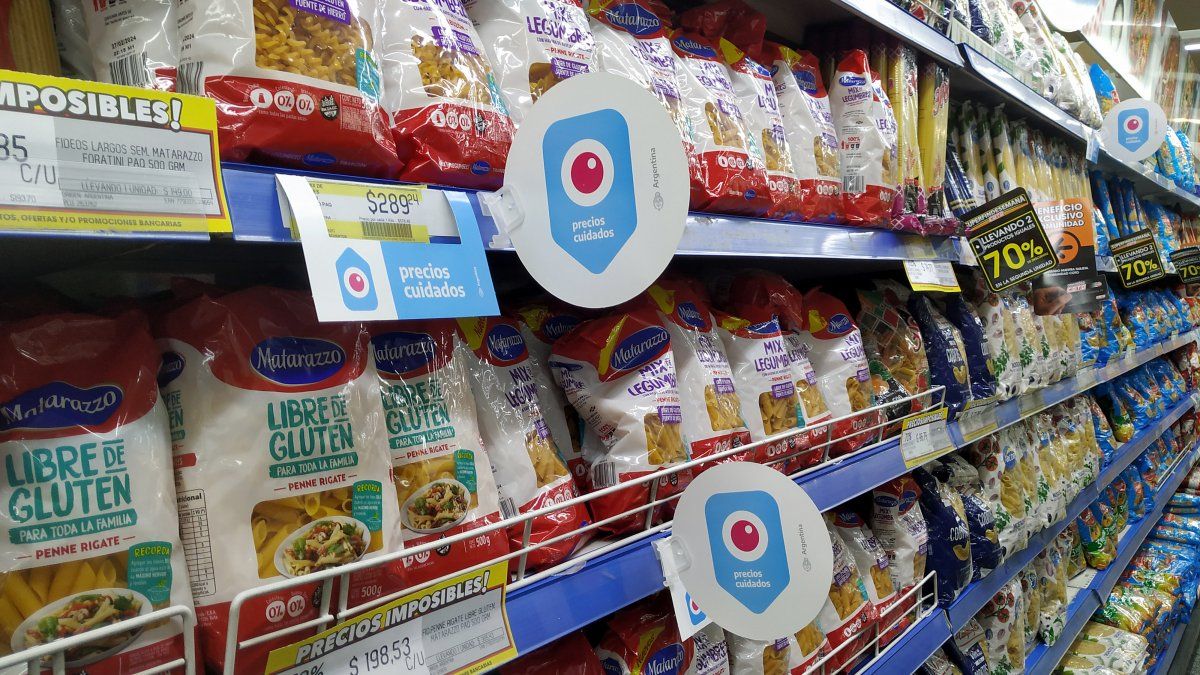Crossed questions: “Who was it?”
On Monday morning, at the weekly meeting held in the chamber that brings together food companies (Copal), the topic of conversation was to ask each other: “Who was?”. It is that same Monday, many of the executives learned from the newspapers that seven companies agreed to join Fair Pricesa new price agreement for food, cleaning and personal hygiene products, which will be in force between November and March, and will keep prices frozen, with the value registered in the package. Economy points to 2,500, but it could start with a first stage of about 1,000.
Only one company claimed to have said that it had closed to enter Fair Prices with a single product. “We were all quite confused, wondering who it was, nobody knew anything, except that they are ultra secretive,” said one of the participants. From another company they added: “At most they said they were in talks, but it is also true that there are times when we cheat.”
The current situation of the Fair Prices agreement is that all the meetings with the large companies held by the Secretary of Commerce, headed by Matías Tombolini, have already concluded. In any case, a second call is not ruled out, to define which products enter the freeze, in an agreement that the Government proposes as voluntary.
As in politics, too in companies there are “hawks and doves”. There are the executives who refuse Fair Prices, assuring that two weeks ago they closed Care Prices. In any case, in the companies they are already analyzing what products could contribute. The big question is “at what price to enter” in that freeze. Projected inflation for the period is 32%, according to EcoGo.
Imports like carrot
Massa revealed on Radio10 a central fact: “We intend to put together a program with the companies that allows them to work on the forecast of imports, using the green customs channel, SIRA programming with a certain payment date”. In hand-to-hand negotiations, Tombolini had anticipated that there was going to be a “compensation for the effort”which could range from a dollar export differential, or tax rebates.
“It is a very tempting carrot”, said an executive of one of the largest consumer goods companies. In a survey carried out by Ámbito, opinions vary: It does not change so much for those that produce simple foods, but it does for those that have more processed goods, who claim to have problems bringing supplies or machinery for plant technology.
From another mass consumption giant, they added: “Imports is key, because it is going to become a central issue in the coming weeks. The operations are locked or give terms greater than 180 days. We have to understand it well to see if it suits”. Another executive added: “We began to do numbers to see how we materialize what they say.” Finally, from another company they added: “There is a lot of concern because there was a total blackout, before the stops were more for finished product, now also for supplies.”
Although there are some companies that would benefit from oiling the import flow, there is annoyance that this mechanism is used: “Import approvals should be given by prioritizing the operation of the factories,” said the sources consulted. “It is extortive means, the same neither the beneficiary nor the injured party is going to complain,” they added. In fact, according to what they told this newspaper, in recent weeks the main opposition leaders who visited business chambers or industrial plants were asked not to make it public. “There is fear because it will impact imports,” they commented from a business chamber in Córdoba.
In the negotiation to freeze the prices of yarn and fabrics to contain the inflation of textiles, the request for imports also arose, but this time from the business side, not as an offer from the Government, angry with the sector for the increases in recent years. At the end of last week, the agreement was ready, but it returned this Monday with “observations”. The doubts are for how long there will be a freeze and for how many months there will be a price adjustment in line with the variation in the exchange rate.
Rejected due to price in the package
Although any freeze is a “bad word”, as defined by a source within Copal, another of the points they question is having to put the price on the packaging. Massa assured on Radio 10 that he has “confirmation” that seven companies will already enter the program “with prices in the packages.” The companies’ complaint is that they are already reprinting the packaging of most of the products, given that they have to change all of them by February, due to the front labeling law, and put the black octagons on them.
In addition, they assure that it cannot be done in the face of November 15. “For Super Close it took us 3 months to print the price on the packages and there were 60 products,” said a source from the private sector. Now the Government’s goal is to start in November and reach 2,500 products. In addition, the companies complain that the Super Close program, which Paula Español had launched in July 2021, lasting until December, was terminated three months later, with the arrival of Roberto Feletti to the secretariat. “In a year they created it, they dropped it and they want to launch it again, all in the same government,” an executive complained. In any case, from Commerce they said that in some cases it could be reached with the prices in the packages.
Source: Ambito
David William is a talented author who has made a name for himself in the world of writing. He is a professional author who writes on a wide range of topics, from general interest to opinion news. David is currently working as a writer at 24 hours worlds where he brings his unique perspective and in-depth research to his articles, making them both informative and engaging.




